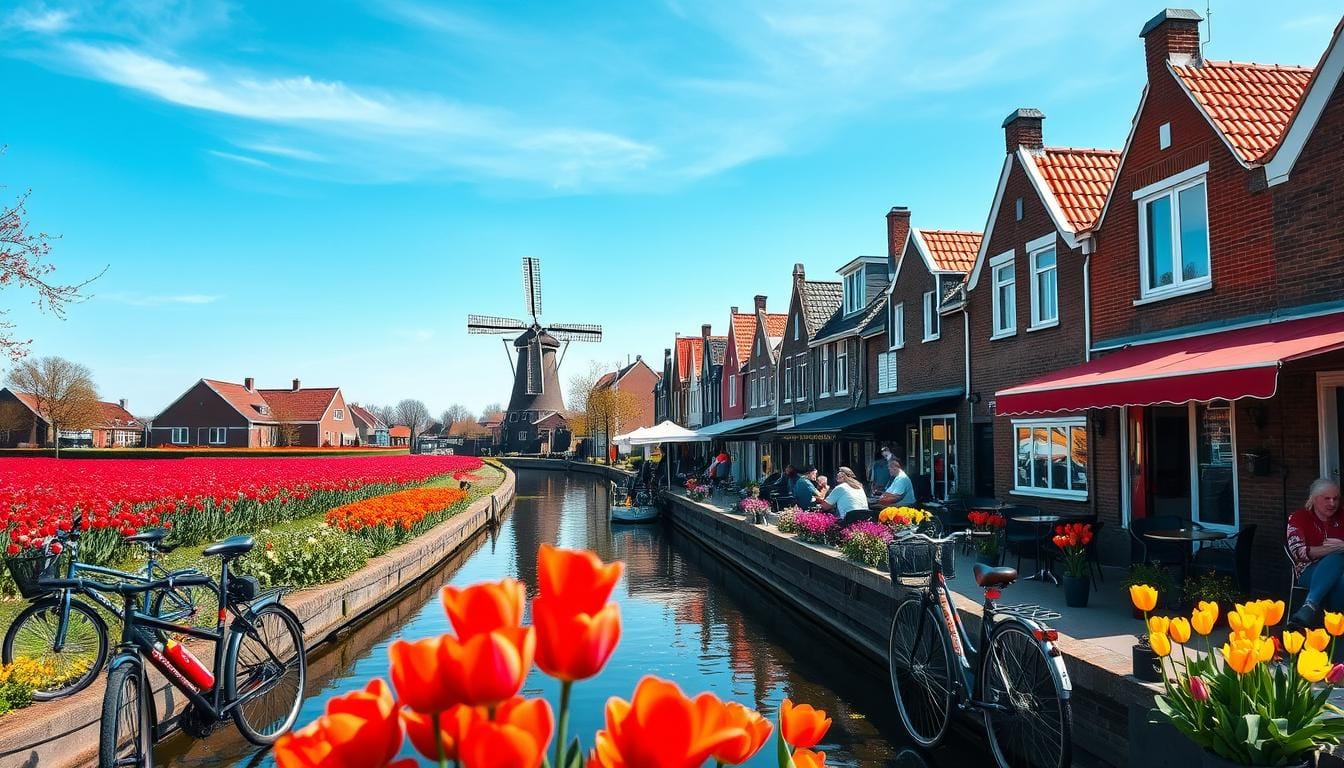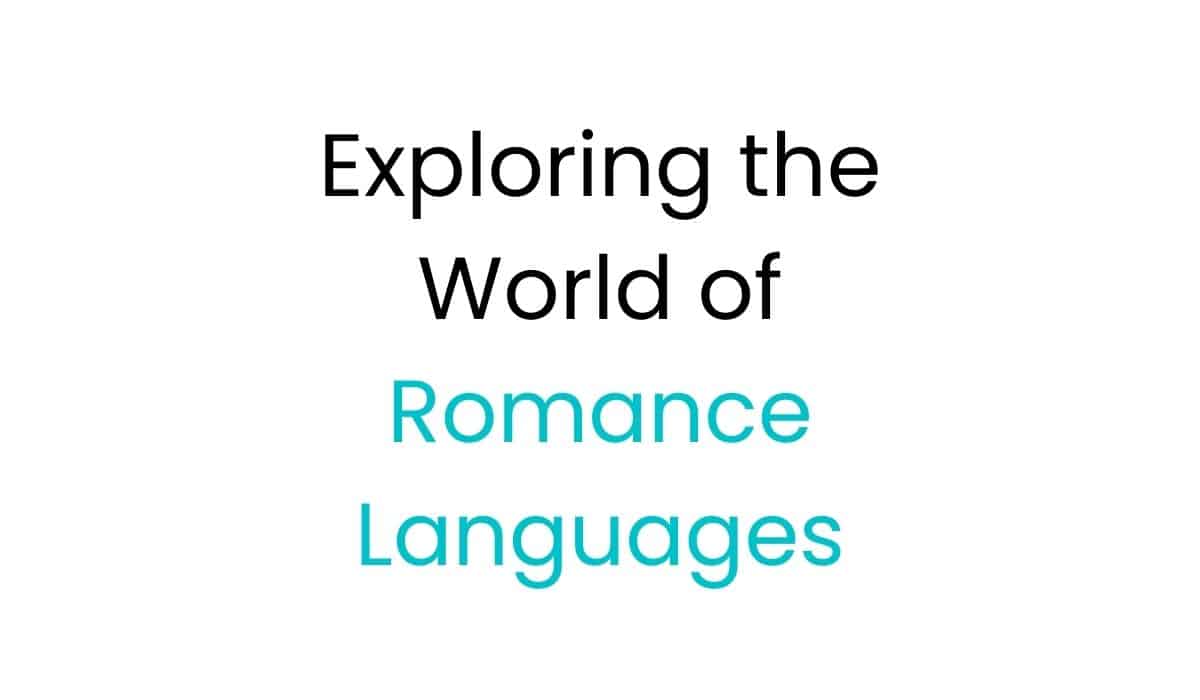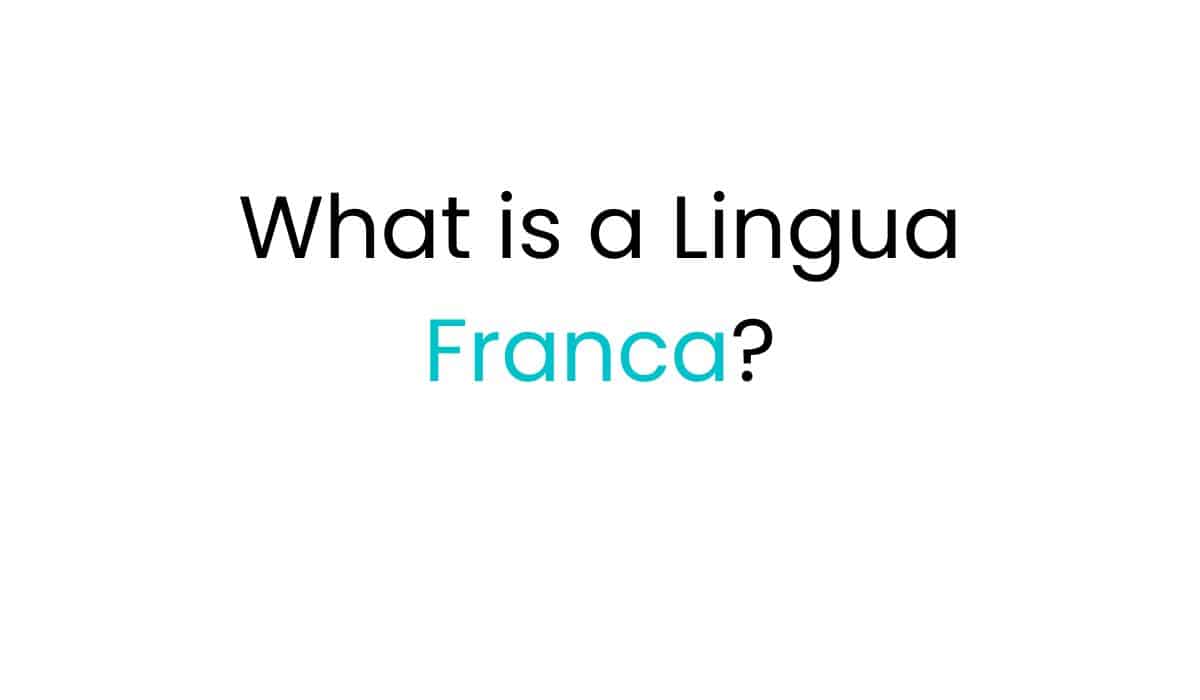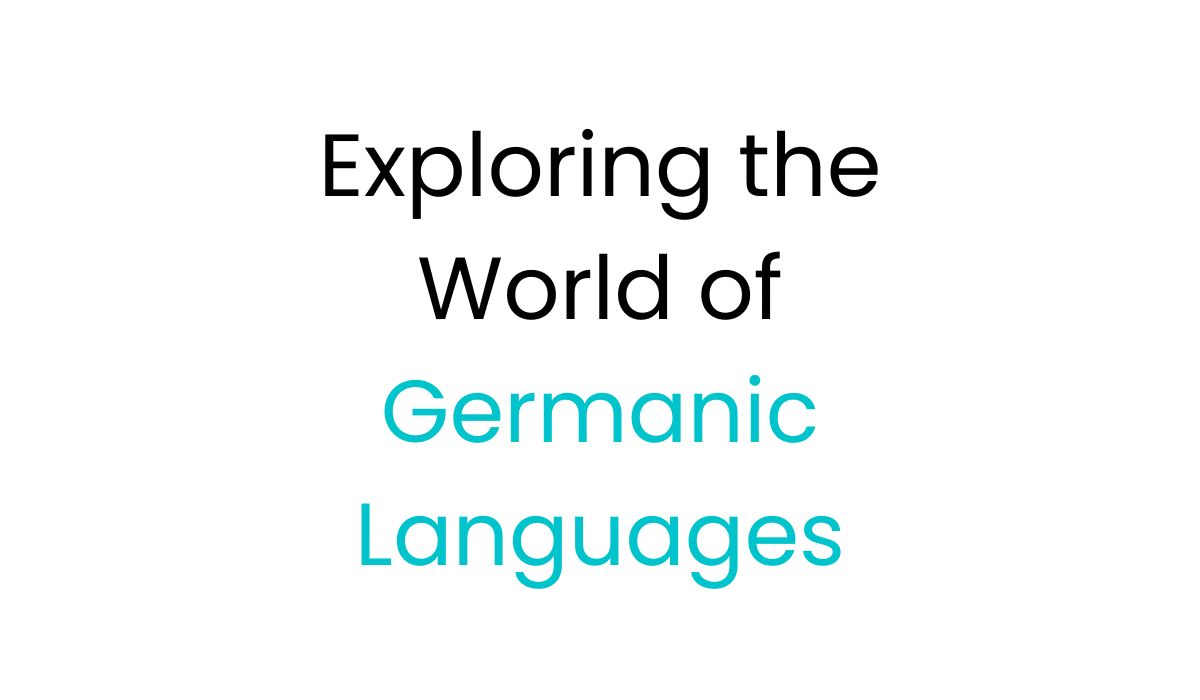Are you looking to learn a new language? Because today we will talk about the top reasons to learn Dutch. Dutch might surprise you. It’s the third-largest Germanic language. It has 23 million native speakers and 4 million more who use it as a second language.
This language is also close to Afrikaans, which 17 million people speak. Dutch offers many cultural and professional chances for those who explore it.

Imagine exploring Amsterdam’s canals or working in the Netherlands and Belgium. Learning Dutch can open many doors. It’s great for those who want to connect with Dutch culture, enjoy its unique sound, or boost their career.
Key Takeaways
- Dutch is the third-largest Germanic language with a global diaspora of 23 million native speakers and 4 million second-language speakers.
- Afrikaans, a closely related language, is spoken by 17 million people worldwide.
- Learning Dutch opens up opportunities in the Netherlands, Belgium, Suriname, and Caribbean islands.
- Dutch is considered an enjoyable and interesting language to learn, with a unique sound and pronunciation.
- Mastering Dutch can enhance your cultural understanding and professional prospects.
- Key Takeaways
- The Growing Importance of Dutch Language Skills
- Dutch Language in the Modern World
- Dutch-Speaking Regions Worldwide
- Cultural Connections Across Continents
- Job Market Benefits in the Netherlands
- International Business Advantages
- Dutch Pronunciation Guide
- Grammar Structure Overview
- Online Learning Platforms
- Traditional Learning Approaches
- What are the top reasons to learn Dutch in 2024?
- Why is the Dutch language becoming increasingly important in today's world?
- What are the advantages for English speakers when learning Dutch?
- Which countries and regions are associated with the Dutch language?
- How is Dutch related to the Afrikaans language?
- How can Dutch language skills benefit one's career?
- What insights can learning Dutch provide into Dutch and Flemish culture?
- What are some unique features of the Dutch language?
- How can speaking Dutch be practically beneficial in daily life?
- What resources are available for learning Dutch?
- How can learning Dutch help with making friends and building networks?
- Is learning Dutch an enjoyable experience?
Why Consider Learning Dutch This Year
In today’s world, knowing how to communicate globally is key. Learning Dutch can boost your personal growth and open new doors. It’s a way to understand Dutch and Flemish culture, history, and society.
The Growing Importance of Dutch Language Skills
About 86% of the Netherlands’ population speaks English. But, Dutch is spoken in many countries, like Belgium and Suriname. Knowing Dutch can help you grow personally and give you an edge in global communication.
Dutch Language in the Modern World
Knowing English helps learn Dutch because they’re related. Also, knowing German makes learning Dutch easier. Dutch language skills can deepen your cultural understanding, connecting you with Dutch culture through language and humor.
| Benefit | Explanation |
|---|---|
| Career Opportunities | Knowing Dutch isn’t always needed for jobs in the Netherlands. But, it’s an advantage. It helps you fit in at work, making it easier to find jobs in hospitality and retail. |
| Cultural Immersion | Learning Dutch helps you understand Dutch culture better. It makes living in the Netherlands more enjoyable. You’ll feel more connected with others who speak Dutch. |
| Daily Life Integration | Knowing Dutch makes everyday life easier. It helps with official tasks and makes you feel more at home. The Dutch appreciate your effort to learn their language, even if you speak English. |
Learning Dutch is a smart choice in today’s world. It’s important, offers unique insights, and has many benefits. Spending time learning Dutch can lead to personal and professional growth.
The English Speaker’s Advantage in Dutch Learning
As an English speaker, you have a big advantage when learning Dutch. The two languages share a common West Germanic root. This makes learning Dutch easier and faster.
One key benefit is the many cognates, or words that are similar in both languages. Many Dutch words are the same as their English counterparts. This makes understanding Dutch easier. Also, Dutch sentence structures are often similar to English, helping you learn faster.
English has a big impact on modern Dutch. A surprising amount of modern Dutch vocabulary directly comes from English. Dutch people often use English words in their conversations, creating a mix called “Dunglish.” This makes learning Dutch easier for English speakers.
English is also very common in Dutch media, schools, and culture. English is taught in Dutch schools from a young age, sometimes as early as two or three years old. Dutch TV, movies, and music often include English, helping learners get more exposure to the language.
While Dutch has its own challenges, like pronunciation and grammar, the connection to English makes it rewarding. By using your English skills and the widespread use of English in the Netherlands, you can open up new opportunities and connections.
| Linguistic Relatedness | Mental Exercise |
|---|---|
|
|
“Many English speakers find Dutch similar to German, with some reporting understanding up to 95% of Dutch spoken by a native Dutch speaker.”
Related: German vs Dutch
Reasons to Learn Dutch: A Gateway to Multiple Countries
Learning Dutch opens the door to a world of diverse cultures and experiences across multiple continents. From the Netherlands and Belgium to the Caribbean islands and South America, Dutch language is a gateway to unique travel opportunities and deeper cultural connections.
Dutch-Speaking Regions Worldwide
Dutch is the official language of the Netherlands, where it is spoken by over 17 million people. It is also one of the official languages in Belgium, used in the northern Flanders region. Beyond Europe, Dutch is the primary language in Suriname, South America, and the Caribbean islands of Aruba, Curaçao, and Sint Maarten.
Cultural Connections Across Continents
- Explore the rich artistic heritage of the Netherlands and Belgium, from the Golden Age of Dutch painting to the innovative architecture and design
- Immerse yourself in the vibrant music, film, and literature scenes of the Dutch-speaking world
- Discover the unique cultural nuances, humour, and way of thinking that come with understanding the Dutch language
- Develop a deeper appreciation for the values of equality, freedom, and direct communication that are integral to Dutch society
By learning Dutch, you can unlock a world of travel opportunities and cultural connections that go beyond the borders of the Netherlands. It’s a language that serves as a gateway to multiple countries, each with its own fascinating history, traditions, and contemporary relevance on the global stage.
| Country | Population | Dutch Speakers |
|---|---|---|
| Netherlands | 17.5 million | Over 17 million |
| Belgium (Flanders) | 6.5 million | Approximately 6 million |
| Suriname | 597,000 | Over 350,000 |
| Aruba | 106,000 | Around 70,000 |
| Curaçao | 164,000 | Around 150,000 |
| Sint Maarten | 42,000 | Around 30,000 |
Dutch and Afrikaans: Two Languages, One Learning Journey
Learning Dutch can open doors to Afrikaans, spoken by 17 million in South Africa and Namibia. Afrikaans comes from Dutch dialects brought by Boer settlers long ago. Though they differ in vocabulary and grammar, their written forms are very similar. This makes learning Dutch easier for Afrikaans.
The relatedness between Dutch and Afrikaans shows their shared roots. About 90% of Afrikaans words come from Dutch. Their structures are also very similar. This means knowing Dutch can help you connect with Afrikaans-speaking communities worldwide.
But, accents can differ, affecting how well you understand spoken Afrikaans. Writing in Dutch might be easier than speaking due to certain rules. Yet, the historical ties between the languages make learning them rewarding.
“Learning Dutch well before starting to learn Afrikaans is recommended by 70% of respondents due to the mutual intelligibility of the languages.”
Success comes from regular practice in speaking, listening, reading, and writing. Experts say spend about six months on Dutch before adding Afrikaans. This helps avoid mixing up words.
Related: All About Dutch
Exploring Dutch and Afrikaans can make learning more interesting. It opens up new ways to communicate globally. Whether you want to connect with Afrikaans speakers or just learn more, this journey is both rewarding and enlightening.

Career Opportunities Through Dutch Language Skills
Learning Dutch can open many doors in the job world, both in the Netherlands and worldwide. With over 23 million native speakers, Dutch is a key skill for those aiming to succeed in international business and communication.
Job Market Benefits in the Netherlands
In the Netherlands, knowing Dutch is often needed, even in English-speaking jobs. Employers value language skills for better communication and building trust with clients. Learning Dutch can give you an edge, opening up more career paths, from teaching to international business.
International Business Advantages
Dutch language skills also boost your career globally. Dutch is official in countries like Suriname and some Caribbean nations. This opens up unique opportunities for those who can speak Dutch. It helps in navigating cross-cultural interactions and building strong relationships with Dutch-speaking partners, essential in international commerce.
| Key Benefits of Dutch Language Skills | Impact on Career Opportunities |
|---|---|
| Competitive Edge in the Dutch Job Market | Access to a wider range of job opportunities, including positions that require fluency in Dutch |
| Enhanced Communication and Relationship-Building with Dutch-Speaking Clients and Partners | Increased chances of success in international business and global communication |
| Deeper Cultural Understanding and Appreciation | Ability to engage with Dutch literature, music, and media, leading to enriched personal and professional experiences |
Whether you dream of working in the Netherlands or want to explore the world, mastering Dutch can lead to amazing job opportunities. It also enhances global communication in various fields and markets.
Understanding Dutch Culture and Society
Learning Dutch opens a door to a rich culture. It lets you understand customs, humor, and social norms of Dutch and Flemish society. This helps you connect better with locals, even when they seem direct.
Knowing Dutch lets you dive into the cultural scene. You can join local events and get media. It’s like unlocking a new world, where you can make real friends and feel at home.
Learning Dutch is more than just speaking a new language. It’s about gaining unique experiences and tips from locals. This journey helps you grow personally and appreciate Dutch culture more.
“Learning Dutch has been one of the most rewarding experiences of my life. It’s not just about the language – it’s about connecting with the people, the traditions, and the spirit of this truly fascinating country.” – Sarah, an American expat living in the Netherlands
Learning Dutch is a big step, whether you’re moving to the Netherlands or just curious. It opens doors to new experiences and connections. It will change your life in many ways.
The Unique Features of Dutch Language
The Dutch language is full of special features that make it a fascinating study. It has many vowels and sounds, like the hard ‘g’, which are fun to learn. Dutch is also close to English and German, making it easier for English speakers to learn.
Dutch Pronunciation Guide
Dutch pronunciation is quite unique. It has lots of vowel sounds that amaze English speakers. Sounds like ‘oe’ and ‘ui’ and the hard ‘g’ make Dutch a fun mental exercise. With practice, you can get used to Dutch’s rhythm and sound.
Grammar Structure Overview
Dutch grammar has its own special rules. It’s similar to English but also has its own twists. Learning Dutch grammar helps you understand language better and improves your skills.
“Learning Dutch not only provides a gateway to the vibrant cultures of the Netherlands and Belgium but also offers a unique perspective on language structure and function.“
Exploring Dutch language features is a rewarding journey. It not only broadens your language skills but also deepens your appreciation for how people communicate.
Practical Benefits of Speaking Dutch
Learning Dutch can make your travels to the Netherlands better. It’s also great for personal growth. Dutch is easy for English and German speakers to learn because it’s similar to both.
Knowing Dutch makes daily tasks easier. You can shop, read menus, and understand signs. It also helps with official documents and forms. This makes living in Dutch areas more independent and easier.
Speaking Dutch connects you to the local culture. It’s influenced by English, French, German, and Hebrew. This opens up a world of cultural experiences and understanding the Netherlands better.
For families, Dutch is key. Kids learn it quickly. This helps parents feel more at home and helps kids in school and society.
Learning Dutch does more than just help with daily tasks. It boosts your career and deepens your appreciation for Dutch culture. Whether traveling or growing personally, Dutch is a rewarding language to learn.

| Benefit | Description |
|---|---|
| Daily Convenience | Facilitates tasks like shopping, reading menus, understanding road signs, and navigating public transport. |
| Administrative Ease | Helps with filling out forms and understanding official documents. |
| Cultural Immersion | Provides a deeper connection to the local culture and appreciation for Dutch literature. |
| Family Integration | Enables expatriate parents to keep up with their children’s language learning and integration. |
| Personal Growth | Enhances cognitive abilities, such as memory, multitasking, and decision-making. |
“Learning a new language, like Dutch, can improve memory, multitasking skills, conceptualization, and decision-making, and may help in preventing dementia.”
Speaking Dutch offers many benefits. It’s not just for practical tasks but also for personal growth. Learning Dutch opens up new opportunities and enriches your experiences in Dutch-speaking areas.
Dutch Language Learning Resources and Methods
Starting your Dutch learning journey is exciting. You’ll find many resources and methods to help you. Whether you want to chat with locals or improve for work, there’s something for you.
Online Learning Platforms
The internet has changed how we learn languages. Now, you can find many online platforms. They offer flexibility and convenience, letting you learn at your own speed.
These platforms have interactive lessons and activities. They help with vocabulary, pronunciation, and grammar. Learning Dutch has never been easier.
Traditional Learning Approaches
If you like a more structured learning path, traditional methods are great. You can choose from language schools, university courses, or private tutors. These options mix classroom learning with online tools.
They offer the benefits of interactive lessons and expert guidance. Whether you want a full program or one-on-one help, there’s a traditional method for you.
“Learning a new language is not only a mental exercise, but also a gateway to a deeper understanding of another culture.” – Unknown
Success in learning Dutch depends on your dedication and willingness to dive in. With the right tools and approach, you’ll become proficient. This opens doors to new cultural, professional, and personal experiences.
Making Friends and Building Networks in Dutch
Starting over in a new country can feel scary. But learning Dutch can change everything. It opens doors to a richer, more authentic experience.
Speaking Dutch lets you connect with locals in a real way. They value your effort to learn their language. This can lead to deeper friendships and networking.
In the Northern Netherlands, cities like Groningen and Leeuwarden are great for learning Dutch. Places like the University of Groningen Language Centre offer courses for all levels.
Building a Dutch network can deepen your cultural understanding. Join clubs, volunteer, or attend events. Remember, building real relationships takes time, just like back home.

Improving your Dutch skills can boost your career and personal life. Making friends and networks in Dutch can transform your experience in the Netherlands.
| Dutch Language Courses in the Northern Netherlands | Course Providers |
|---|---|
| General Dutch, Dutch self-study, Dutch for students and staff | University of Groningen Language Centre |
| Preparation for integration exams, B2 level proficiency | Drenthe College in Meppel, Assen, and Emmen |
| Wide range of Dutch language courses | IVIO-Opleidingen in Emmen |
| NT2 (Dutch as a second language) courses | Alfa-college and Noorderpoort |
“The fast way to learn Dutch is with guidance and a supportive community in the Northern Netherlands.”
The Fun Side of Learning Dutch
Learning Dutch might seem tough, but it can be fun and rewarding. The language has unique sounds, colorful idioms, and cultural insights. It’s a delightful journey for those who are ready to explore.
The “g” sound in Dutch is a challenge for many. But mastering it adds character to the language. It also gives you a sense of achievement. Dutch is known for its playful expressions and colorful phrases, giving a peek into the country’s lively culture.
- Discover the joy of watching Dutch movies, listening to their eclectic music, or immersing yourself in the rich literary and comic book traditions.
- Engage in lively “taalcafes” (language cafes) to practice your Dutch conversational skills while making new friends.
- Challenge yourself to master the complex grammar structures and watch your language skills grow.
Research shows that feeling positive can help you learn better. By enjoying the fun aspects of Dutch, you’ll improve your language skills. You’ll also appreciate Dutch culture more.
“Learning a language should be an enjoyable journey, not a daunting task. Embrace the fun side of Dutch, and you’ll be on your way to fluency in no time.”
So, why not make your language learning journey fun? Explore the fun side of Dutch with a positive attitude. You’ll be well on your way to mastering this captivating language.
Conclusion
Learning Dutch in 2024 brings many benefits. It can boost your career and help you understand different cultures. This language opens doors to many countries and cultures, making it a fun challenge.
Whether you want to advance in your career, travel, or just learn something new, Dutch is a great skill. It’s valuable in our connected world.
Dutch is spoken by about 25 million people and is official in 6 countries. It’s not the most common language, but its importance is growing. This is true in fields like government, healthcare, education, and media.
Knowing Dutch can lead to new job and study chances. These opportunities aren’t just in the Netherlands but also across Europe and further.
Learning Dutch also helps you grow personally. It makes you smarter, more open to different cultures, and more adaptable. Plus, it helps you connect with people and build strong relationships.
As more people start learning Dutch, its benefits for reasons to learn Dutch, global communication, and personal growth become clear. It’s a great choice for those looking to explore new languages and cultures.
FAQ
What are the top reasons to learn Dutch in 2024?
Why is the Dutch language becoming increasingly important in today’s world?
What are the advantages for English speakers when learning Dutch?
Which countries and regions are associated with the Dutch language?
How is Dutch related to the Afrikaans language?
How can Dutch language skills benefit one’s career?
What insights can learning Dutch provide into Dutch and Flemish culture?
What are some unique features of the Dutch language?
How can speaking Dutch be practically beneficial in daily life?
What resources are available for learning Dutch?
How can learning Dutch help with making friends and building networks?
Is learning Dutch an enjoyable experience?
Oualid Cheddadi is the founder of Lingualid, a platform that inspires independent language learners worldwide, regardless of the language they are learning. The name “Lingualid” is derived from the Portuguese word for “language,” “língua,” and the last three letters of Oualid’s name, “Lid.”



